Now that I don’t work at Playdom, I have rather more freedom to write about Facebook games; I don’t plan to do that a lot, and I’ll certainly be doing so with a Playdom bias (among other things because I get a lot more game invites for Playdom’s games than for other games), but I figure I should at least spend a bit of time talking about games that I’ve been playing recently.
Deep Realms
Deep Realms is Playdom’s most recent RPG. And it’s quite different from the vast majority of Facebook RPGs: most entries in the genre have little to explore and give you almost no control over your actions (other than player-vs-player combat): either you have the items necessary to perform an action or you don’t. Deep Realms, in contrast, is a dungeon crawler where you take more of an active role in exploring the terrain (similar to Treasure Isle in that regard), and where you’ve got some amount of customization in terms of weapons/armor, leveling up, and abilities. (Plus a bit of a plot, too.)
I’m not used to playing a Facebook game where I spend a bit of time calculating probabilities of different chains of attacks, but I sometimes do that when playing Deep Realms. (Don’t get me wrong, you don’t have to, but the option is there.) And there’s an interesting gesture at an asynchronous party system, where you do better if you have friends playing the other four classes who send you gifts regularly; not exactly a rich party system, but better than the gifts in most games, I suppose. Certainly my first play session was rather interesting.
The pacing, however, doesn’t work for me at all. In the first session, they give you enough energy to make it through the first dungeon (which actually was almost too long); I’ve played it several times since then, however, and I haven’t made it to the end of the second dungeon yet. Which would be okay if I were enjoying the dungeon crawling itself a bit more than I am; as is, it’s okay, but, well, I’d rather be writing blog posts or something most of the time when I’m at a computer at home. I’d definitely be playing it more if I could dip into it several times during a day (clearly my former coworkers are playing it a ton, judging from the volume of gift requests I get), but that’s not how my Facebook game usage works now; and, even with that, I wish I made more progress during individual sessions. Also, the pricing is screwed up: I’m all for asking users to pay for your game, but Playdom is asking basically a buck a pop each time you want to extend your play session, and I’m not getting enough out of the play sessions to want to be doing that. (Playdom’s insistence on going through its own in-game currency doesn’t help either.)
I’m glad the game exists, and maybe with tuning I’ll like it more. Though even with that, who knows how many users it will attract: it doesn’t seem to be geared at the mainstream Facebook audience at all. (On which note, I appreciate its flaunting current Facebook convention in not having any space to decorate. Not that it’s avoided all Facebook conventions: it’s quite dooberiffic, and collections are there too.)
Gardens of Time
Gardens of Time is also a Playdom game, a hidden object one. Which I’m actually finding a surprising amount of fun! Hidden object games aren’t exactly the richest of genres; but they’re a perfectly pleasant way to spend a few minutes, this one has nice art, a couple of variants on the core gameplay, and well done hint and scoring systems. Unlike Deep Realms, also, they got the pacing just right: you can do six puzzles in a session, plus a few more if you have lots of friends playing the game, and that’s a perfectly nice bite-size chunk of gameplay. The per-puzzle friend leaderboards work well, and it’s also a game that Miranda and I enjoy playing together.
It does have a decorative space, which I have mixed feelings about. It makes sense in the context of the game to be decorating your own garden with items from those time period; and they use decoration as the gating factor for opening up new levels, which is probably better than having them opened by, say, some sort of direct point value mechanism. Or maybe not: the problem is that you can be in a situation where you like the way your garden looks but don’t have enough points to open up the next puzzle, so you end up stuffing your garden with decorations that you don’t want. So I’m not convinced that they’ve gotten that balance entirely right, but still, it’s not too obtrusive.
Or, of course, you can open up puzzles by paying for them; and one sixth of the puzzles can only be unlocked by paying for them. Which I actually think is great: there’s nothing special about those puzzles, so you’re not losing anything at all by giving them a pass; but if you do decide you want to unlock them, you can do so permanently for around a couple of bucks per puzzle, which seems eminently reasonable. (Or fifty cents for unlocking a puzzle that you don’t want to unlock by decoration, which is also fine.) My only gripe there is, again, Playdom’s insistence on inserting its own in-game currency in the middle: you can’t buy exactly what you want using Facebook credits, you have to instead spend too much money. I would be perfectly happy if Facebook were to prevent companies from doing that: as a game player, I far prefer having as few different layers of currency between myself and things that I want to buy.
In contrast Deep Realms, Gardens of Time is apparently quite popular, and I’m not at all surprised. (Of course, who knows how much ad spend is affecting that, but I’m sure Playdom isn’t spending ad money blindly.) Incidentally, Tami Baribeau wrote a post contrasting the two games as well.
Little Cave Hero
Little Cave Hero is by a company named Atakama Labs that I’d never heard of, and I think it’s totally charming. I like the pixelated art style, I like the way that it takes the same sort of tile-based dungeon exploration that Deep Realms and Treasure Isle have (without the combat of the former) but somehow manages to give it a more puzzle feel instead of a pure clicky grind feel. (And the pacing works better for me than Deep Realms: sessions are short, but you can clear half a dungeon in one, and I’m happy to do without the combat.) And I like the goals that the technology tree gives you, figuring out how to manage your resources to get better tools to let you explore more effectively. And the mayor in the game is mildly amusing, and if you’re feeling creative, there’s even a pixel art tool that you can use to build objects to decorate your own town with!
Right now, it only has a tiny userbase; not sure if they’re not advertising at all or if it’s not to the taste of most of Facebook’s audience or what. Hmm, looking at the developer’s home page, they also did Terranova—I was rather into that one until the crop spoilage got to me. And they did the iPhone version of Today I Die? Clearly I should be paying more attention to these guys. And of the games mentioned here, my guess is that this one is most to the taste of readers of my blog: please do give it a try (and send me a neighbor request in game!), small developers that are doing something a bit different deserve our support!
Post Revisions:
This post has not been revised since publication.
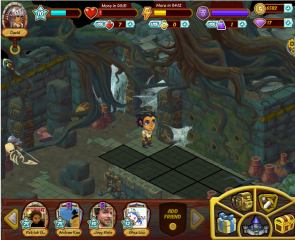
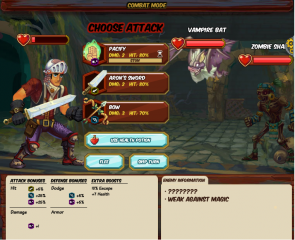
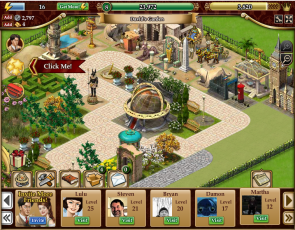
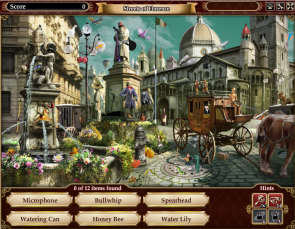
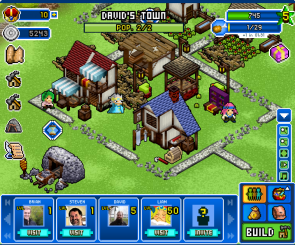
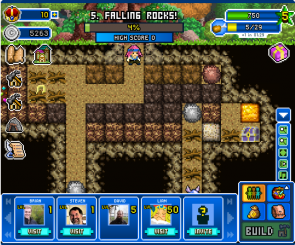
 Posts
Posts